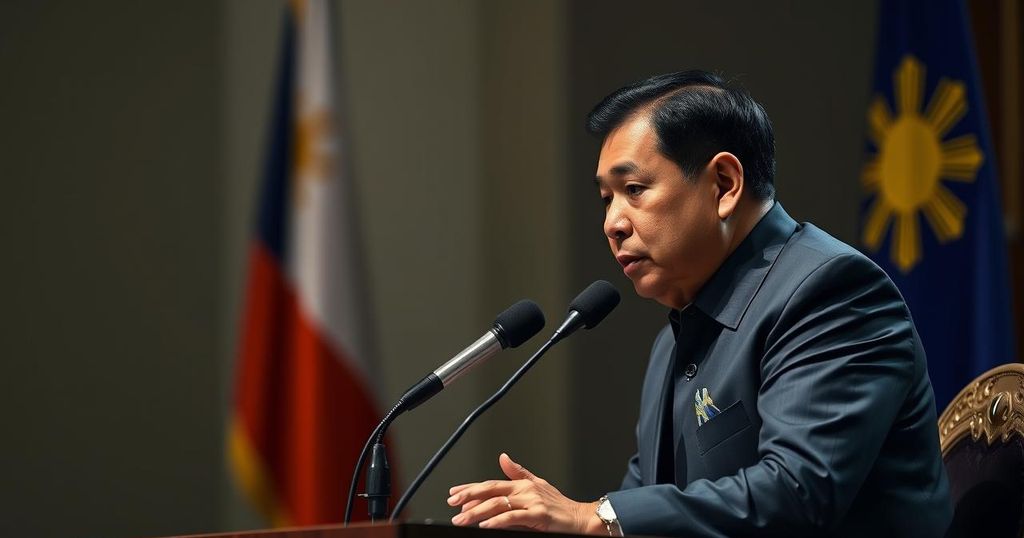The Global Hot List reveals critical political developments, including concerns over Kamala Harris’s polling in the USA, voting divides in India, the rise of extremist politics in Lithuania, electoral tensions in Mozambique, and scandals in Kenya and the Philippines, as well as the influence of police in Brazil. These issues are pivotal in shaping the current political landscape globally.
The Global Hot List, compiled by elections expert Brad Glasser, highlights significant political developments from around the world. This week, the focus is on the evolving electoral landscape in the USA, India’s rural-urban voting divide, the rise of extremist politics in Lithuania, electoral tensions in Mozambique, the potential for further elections in Ireland, political polarization in Georgia, an impeachment scandal in Kenya, strained relations in the Philippines, and the phenomenon of police influencers in Brazil. 1. USA: Concerns among Democrats about Vice President Kamala Harris’s standings are growing, prompting a senior advisor to dismiss poll volatility as misleading. The advisor emphasizes the importance of grassroots efforts and final campaign messages in shaping the election outcome. 2. India: The recent Haryana state election exemplifies a significant urban-rural voting divergence, with the ruling BJP performing well in urban centers and the opposition Congress finding support in rural areas. However, the BJP faced a drop in urban areas with high growth rates compared to previous elections. 3. Lithuania: The emergence of the extremist party Dawn of Nemunas signifies a worrying trend, as it secured third place in national elections. The party’s leader has faced prosecution for anti-Semitic remarks regarding World War II atrocities, reflecting a broader concerning shift towards right-wing populism in Lithuania. 4. Mozambique: An independent presidential candidate, Venancio Mondlane, claims electoral victory, threatening nationwide strikes against the ruling Frelimo party, which has faced accusations of electoral fraud and public discontent rooted in unemployment and corruption. 5. Ireland: The possibility of a snap election could arise as the left-wing Sinn Fein party’s stronghold faces challenges from the incumbent Fine Gael party, which aims to capitalize on recent internal controversies facing Sinn Fein. 6. Georgia: Political trust is at a low amid fears that the pro-Russia ruling party, Georgian Dream, could manipulate electoral proceedings, as they consider a complete ban of opposition in the upcoming elections, mirroring authoritarian tactics. 7. Kenya: The impeachment of Vice President Rigathi Gachagua highlights ongoing political turmoil regarding corruption and ethnic tensions. His fate now lies in the hands of the Senate as they assess the legitimacy of the impeachment process. 8. Philippines: A notable rift has emerged between Vice President Sara Duterte and President Ferdinand Marcos Jr. after Duterte clarified that they were never friends, revealing underlying tensions stemming from familial political histories. 9. Brazil: The influence of police officers on social media is growing, with many racing for local offices. This phenomenon raises critical discussions on the implications of police actions for civil rights and the potential glorification of a violent approach to governance.
The Global Hot List is a strategic compilation of urgent political narratives that demand attention from policy analysts, political strategists, and citizens engaged in global governance. Each entry in this list draws insights from recent elections, political alignments, and emerging trends, providing an analytical lens to understand the shifting dynamics of power in various nations. By focusing on specific events, such as elections, impeachments, and the rise of extremist parties, the list serves as an indicator of the broader political climate impacting global stability and democratic integrity.
The developments outlined in this week’s Global Hot List underscore the complexities and challenges faced by nations as they navigate elections, political alliances, and societal issues. From the electoral strategies in the United States to the rise of extremist elements in Lithuania, these narratives reflect a global mosaic of political intrigue and democratic challenges. It remains vital for stakeholders to closely monitor these trends to anticipate their implications for national and international governance.
Original Source: www.semafor.com






